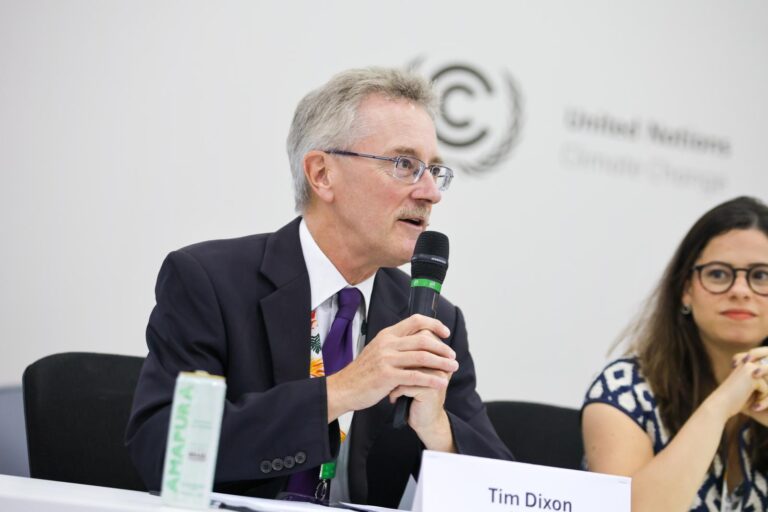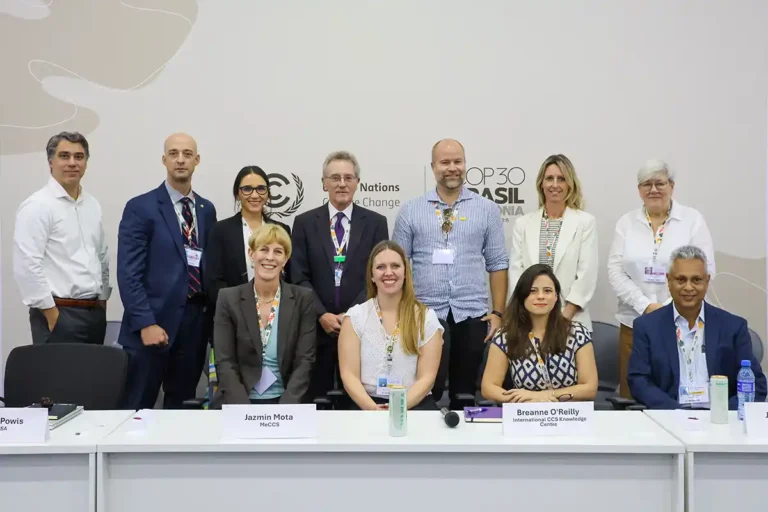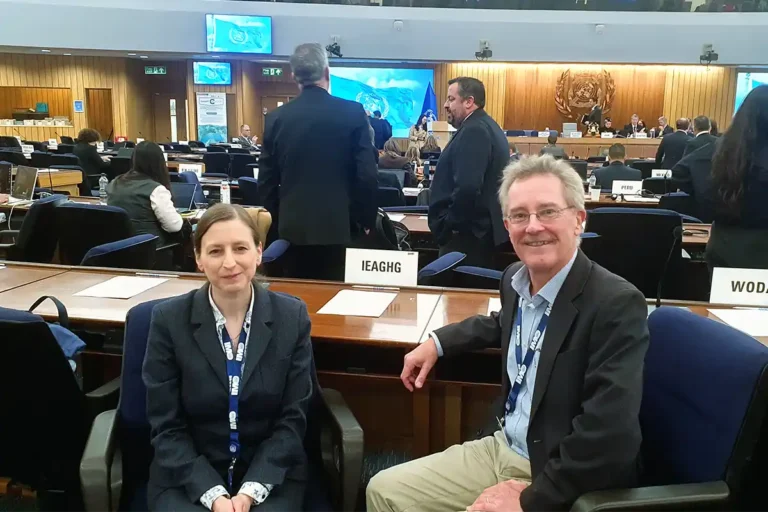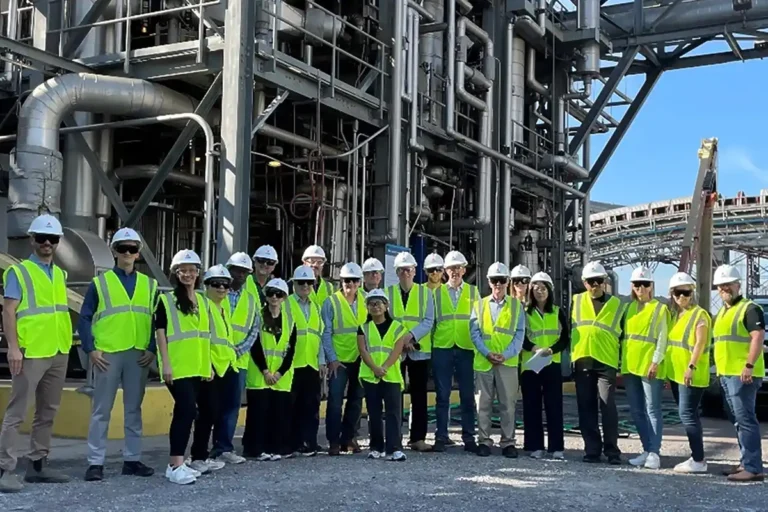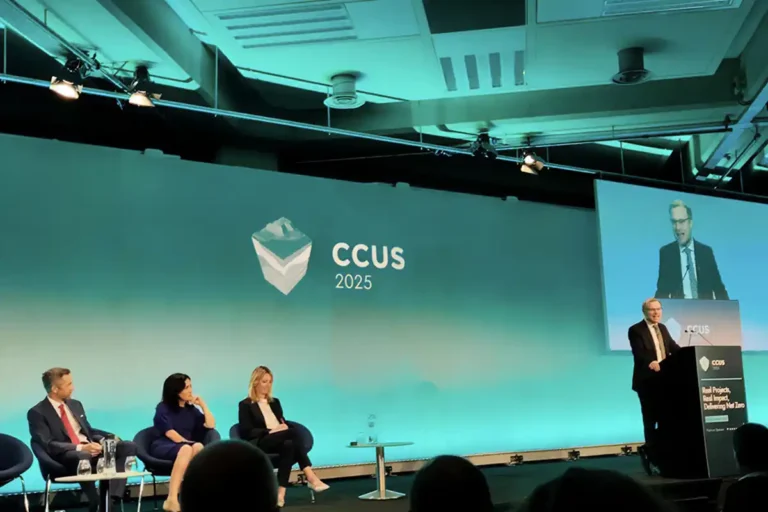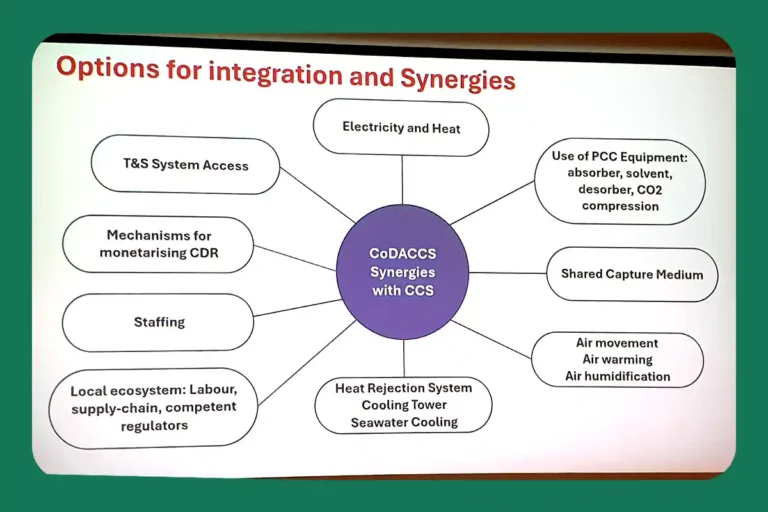
New IEAGHG report: CCS and the sustainable development goals (SDGs)
15 December 2020
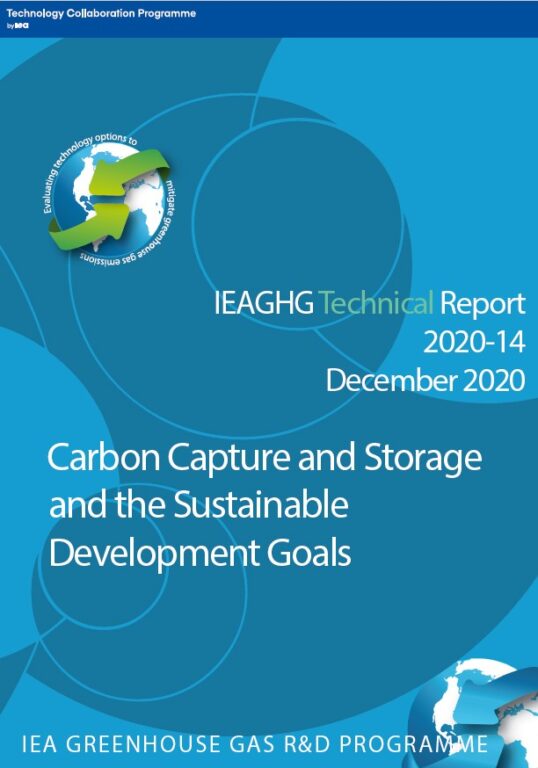
A few months prior to the Paris Agreement, in September 2015 ‘Transforming our World: the 2030 Agenda for Sustainable Development’ was adopted by the United Nations General Assembly. This resolution, consisting of 17 sustainable development goals (SDGs), covering a wide range of human development areas and broader environmental sustainability issues, is a follow-up to the Millennium Development Goals. Both the Paris Agreement, and the 2030 Agenda, although negotiated under different multilateral processes, are considerably interlinked. The Paris Agreement emphasises the need for sustainable development considerations in low-emissions transitions; at the same time combatting climate change is one of the 17 SDGs. The IPCC’s Special Report on 1.5°C (SR1.5) has made an initial assessment on the synergies and trade-offs between mitigation options and sustainable development, including CCS use in the energy supply and industrial sectors. The IPCC assessment represents a useful first insight on the interaction of CCS with the SDGs. For a number of SDGs no assessment was feasible as no relevant public literature could be identified. A dedicated, in-depth assessment, as was done in this study, can further help to support and complement the findings of the IPCC.
This study has mapped carbon capture and storage (CCS) technologies against a select number of the 17 SDGs that have a direct interaction for both the power and industrial sectors. The overall objective of this assessment was to improve the availability and accessibility of information regarding the relevance of CCS in contributing to the achievement of the SDGs.
Key Messages
CCS has a number of positive interactions with the SDGs:
- The considerable potential for CCS to immediately decarbonize both the power and industrial sector means that the deployment of CCS is considered indivisible with actions needed to combat climate change and its impacts (SDG13).
- CCS plays an enabling role in the provision of reliable, sustainable and modern energy and can support the decarbonisation of industry both through direct emissions reductions but also indirectly through the supply of low carbon power (SDG7).
- CCS can promote sustained, inclusive and sustainable economic growth, full and productive employment and decent work for all and contribute to a decoupling of economic growth from environmental degradation, through the reduction of CO2 emissions (SDG8).
- CCS can also enable sustainable infrastructure developments as well as inclusive and sustainable industrialization, provide a boost to innovation systems, (SDG9), and reduce the carbon footprint of cities to make them more sustainable (SDG11).
- Through the reduction of CO2 in the atmosphere, CCS can enable the stabilisation of ocean acidification (a key target of SDG14, i.e. SDG14.3).
CCS can also have a number of negative interactions with the SDGs:
- Lifecycle emissions may result in counteracting or constraining interactions with a number of SDGs (3, 6 and 15).
- In a demand-driven scenario, the energy penalty of CCS means that it can be seen as a constraint on meeting energy efficiency targets (SDG7) but this is only if the assumption that the additional electricity production due to the energy penalty will be supplied by fossil fuels with CCS. In a modern electricity system based on economic generation dispatch (merit order) this may not be the case (see sections on Approach and Limitations for more context).
Although CCS obtained a variety of scores across the SDG targets in the assessment, for none of the mapped SGDs CCS was seen as ‘cancelling’, i.e. making it impossible to reach the related SDG and/or sub target.
A number of limitations apply when using the results of this study for policy development:
- Availability and comparability of data.
- Definition of the counterfactual will impact on the results (e.g. demand-driven vs capacity-driven scenario, in the latter most negative impacts of CCS, i.e. the ones related to the energy penalty and the related fuel consumption, will not materialise).
- Construction and use of all low-emission technologies will have various environmental, economic and social impacts, i.e. evaluation of trade-offs in isolation will likely have limited value for policy development and selection of pathways.
Several knowledge gaps were identified and recommendations for further work include:
- Additional lifecycle assessments (LCAs) of 2nd generation CCS technologies and CCS in industry (especially in terms of water and energy efficiency gains).
- More studies on the macroeconomic impact of CCS in different regions.
- Research on the employment aspects of CCS compared to other low-emission technologies.
- Investigation of the role of certain CCS technologies for carbon dioxide removal (CDR), i.e. bioenergy with CCS (BECCS) and direct air capture with CCS (DACS).
Other articles you might be interested in
Get the latest CCS news and insights
Get essential news and updates from the CCS sector and the IEAGHG by email.
Can’t find what you are looking for?
Whatever you would like to know, our dedicated team of experts is here to help you. Just drop us an email and we will get back to you as soon as we can.
Contact Us NowOther articles you might be interested in
Get the latest CCS news and insights
Get essential news and updates from the CCS sector and the IEAGHG by email.
Can't find what you are looking for?
Whatever you would like to know, our dedicated team of experts is here to help you. Just drop us an email and we will get back to you as soon as we can.
Contact Us Now


